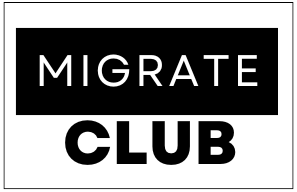Are you from a non-EU country and eager to work in Germany? Germany has introduced the Opportunity Card, which allows candidates from non-EU countries to enter and seek employment without needing a permanent job contract.
This initiative aims to attract skilled workers by simplifying the process. To qualify, candidates must be recognized as skilled workers or accumulate at least six points in a points-based system, with financial support for their stay assured.
The Opportunity Card makes the job search process in Germany easier. Applicants need a minimum of two years of vocational training or a university degree recognized in their home country and must demonstrate language proficiency in German (A1) or English (B2). Financial stability is essential and can be demonstrated with a part-time job (up to 20 hours per week).
How to Calculate your Points for the Opportunity Card
The points system evaluates language skills, professional experience, age, and connection to Germany. To qualify, candidates need a total of six points. Basic requirements include language proficiency and financial security, evidenced by an employment contract for part-time work.
- Four points are given for partial recognition of foreign professional qualifications or permission to practice regulated professions such as teaching or engineering.
- Three points are awarded for five years of professional experience within the last seven years or good German language skills at B2 level.
- Two points are given for two years of professional experience following vocational training, or if the applicant is under 35 years old, and for German language skills at B1 level.
- One point is allocated for applicants under 40 years old or those with previous stays in Germany, excluding tourist visits.
- Additional points are available for very good English skills (C1), reasonable German skills (A2), qualifications in shortage occupations, or joint applications with a spouses
Key Benefits of the Opportunity Card
- Easy Entry: Simplified process to enter Germany.
- 12-Month Stay: One-year residency with the possibility of a permanent permit.
- Earning Potential: Over 1000 euros monthly income possible.
- Work Flexibility: Permit for up to 20 hours of work per week.
- Job Search Opportunity: Time to find a qualified part-time or full-time job.
For employers, the Opportunity Card broadens the applicant pool by attracting skilled workers from non-EU countries. This legal framework expedites entry and employment procedures, allowing employers to hire suitable candidates more efficiently.
Why Employers Prefer the Opportunity Card
- Expanded Applicant Pool: Access to qualified foreign professionals.
- Simplified Entry: No Federal Employment Agency approval needed.
- Fast-Track Hiring: Quick and easy entry procedures.
- Pre-Entry Contracts: Ability to secure part-time job contracts before the applicant’s arrival.
Applying for the Opportunity Card
Submit your application at the relevant German mission abroad (e.g., German Embassy or Consulate) or, if already in Germany, at the local Foreigners’ Registration Office. Ensure you have a valid residence permit or visa. You must meet the required criteria and provide proof of qualifications, language skills, and financial means, such as an employment contract for a part-time job.
Proof of Previous Stay in Germany
To verify a previous six-month stay, provide documents like tenancy agreements, service charge statements, employment contracts, or wage payment records. Tourist stays do not count.
Language Tests you can use to Apply for the Opportunity Card
Basic proficiency in German at level A1 or English at level B2 is necessary to obtain the Opportunity Card. Additional language proficiency is factored into the point system. One point is awarded for German at level A2, two points for German at level B1, and three points for German at level B2. One point is awarded for proficiency in the English language at level C1, in addition to proficiency in German.
Language Tests you can use to Apply for the Opportunity Card
Basic proficiency in German at level A1 or English at level B2 is necessary to obtain the Opportunity Card. Additional language proficiency is factored into the point system. One point is awarded for German at level A2, two points for German at level B1, and three points for German at level B2. One point is awarded for proficiency in the English language at level C1, in addition to proficiency in German.
German tests
1. GER
- Consists of four areas: Listening, reading, speaking and writing
- Includes six levels (like all German tests)
- Free online placement test
- A1 (understand simple German sentences)
- A2 (basic knowledge)
- B1 (intermediate)
- B2 (good Intermediate)
- C1 (advanced knowledge)
- C2 (excellent knowledge / mother-tongue level)
2. Goethe Certificate
- German tests at Goethe-Institut
- Online courses available
- Certificates internationally recognised
- Free placement test
- Choose a language course at your level
- (A1 – A2 for language beginners, B1 – B2 for advanced knowledge, C1 – C2 as final levels)
- Exams available after each level
- Costs around 100 – 300 euros
3. TestDaF / Test German as a Foreign Language
- German language skills tested at competence levels B2 – C1
- Offered in over 1000 test centres worldwide
- Tests reading comprehension, listening comprehension, written expression, oral expression
- Available digitally
- Costs around 215 euros
4. DSD / German Language Diploma of the Conference of Ministers of Education and Cultural Affairs
- Developed for foreign students
- Exams twice a year at special DSD schools worldwide
- Two diplomas available: DSD1, DSD2
- Reading comprehension, listening comprehension, written expression, oral expression
- Free of charge
- Suitable for candidates at language levels A2, B1, B2, C1
English tests
1. TOEFL / Test of English as a Foreign Language
- Online at special test centres
- Duration around 4 hours
- Reading comprehension, listening comprehension, speaking (conversation) and written expression (essay)
- Costs around 200 euros
2. IELTS / International English Language Testing Systems
- British English as well as American English tests
- Duration around three hours
- Duration around three hours
- Two variants: General (for expatriates and people who want to stay abroad for a longer period of time) and academic (for students who want to apply to a foreign university)
- Listening (comprehension), reading (comprehension), writing (phrasing), speaking (conversation)
- Costs around 226 euros
- Provided by the British Council, available in 17 cities in Germany
3. Cambridge Certificate
- You must first choose your language level and then pass the test
- Various categories:
- A1 – A2 Basic Users = Elementary language use
- B1 – B2 Independent Users = Independent language use
- C1 – C2 Proficient Users = Competent language use
- Duration around 3-4 hours
- Consists of reading and use (text and reading comprehension), writing (formal language), listening (comprehension), speaking (conversation)
- Costs around 200 euros
- Offered by Cambridge University at 2700 test centres worldwide.
























